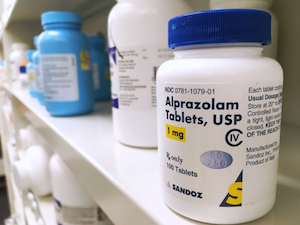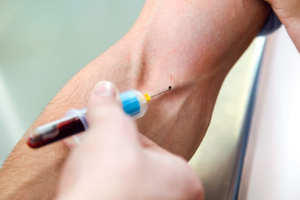“Even the best trained and most experienced police officers make mistakes and misconstrue the test results, whether related to field sobriety tests or breath alcohol testing. Driving while impaired is a complicated jumble of factors.”
Bill Powers
Until the National Highway Traffic Safety Administration or NHTSA decided upon formally adopting the “big three” DWI field tests on a nationwide basis, there were numerous DWI tests that were being utilized by law enforcement in the prosecution of DWI charges in NC and “drunken driving” around the nation.
Are DWI Dexterity Tests Accurate? Does DUI Standardized Field Sobriety Testing Prove Someone is “Drunk Driving” or “Drunken Driving?” The conclusions regularly drawn from DWI investigations are substantially more expansive than a conclusion that someone is “drunk” or has been “drunk driving” in North Carolina.
Indeed, the legal standard under the NC DWI laws is whether the person accused of DWI “consumed a sufficient quantity of an impairing substance so as to appreciably impair their mental or physical faculties or both,” NOT whether they were “drunk driving.”
“People facing allegations of DUI should note, while alcohol is an impairing substance, the DWI laws in North Carolina do not limit prosecutions to alcohol alone; nor is there any mention of being drunk or drunk driving. The legal standard is much lower and therefore much more problematic.” Bill Powers
![Alprazolam]() While reasonable legal minds may differ as to the meaning of “appreciable impairment,” in driving while impaired cases in North Carolina, there is no argument that DWI is by no means limited to just alcohol and alcoholic beverages like beer, wine, or liquor.
While reasonable legal minds may differ as to the meaning of “appreciable impairment,” in driving while impaired cases in North Carolina, there is no argument that DWI is by no means limited to just alcohol and alcoholic beverages like beer, wine, or liquor.
In fact, that’s one of the reasons it’s more technically correct in North Carolina to refer to “impaired driving” as DWI, which stands for Driving While Impaired. If you or a loved one are facing allegations of DWI, impairment may be the result of consumption of alcohol or illegal drugs like marijuana and even lawfully prescribed medications or a combination of drugs and alcohol.
The general public commonly refers to “drunk driving” or DUI in NC, thinking most people are arrested and taken to jail because they drank too much. Indeed, until arrested and taken to jail for DUI, many would “never drive while drunk or drive while impaired,” not knowing what the DWI laws in NC are. In fact, our defense lawyers are used to hearing, “But I wasn’t drunk. I was tired, I hadn’t eaten, and I took my prescription.”
Those are all completely logical and reasonable responses after the shock of a DWI arrest. Unfortunately, those factors may actually help the State in its prosecution of DWI cases in North Carolina.
![Inyecting]() The scientific literature on impairment and DWI arrests indicate “impairment” is due to a combination of factors. That’s one reason why you do NOT have to blow over a legal limit (0.079) to be found guilty of DWI in North Carolina. The criminal laws in North Carolina do not require what lawyers refer to as “specific intent.”
The scientific literature on impairment and DWI arrests indicate “impairment” is due to a combination of factors. That’s one reason why you do NOT have to blow over a legal limit (0.079) to be found guilty of DWI in North Carolina. The criminal laws in North Carolina do not require what lawyers refer to as “specific intent.”
You don’t have to intend to drive while impaired. Many, if not most, people are truly surprised to get stopped, handcuffed, and taken to jail for DWI thinking being “a little buzzed, but not over the legal limit” is OK. It’s not.
That “feeling” of the effects of alcohol or medications or drugs, if noticeable or capable of being observed or perceived, is EXACTLY what prosecutors use in arguments in DWI cases to explain “appreciable impairment” to juries in North Carolina. That’s true for District Court trials too.
Everyone has seen someone “drunk.” It’s not hard to describe. Clearly DWI dexterity tests and field sobriety testing for impaired driving cases would detect a “drunk driver.”
“Roadside DWI tests are intended to dive much, much more deeply into the legal issue of whether an officer can notice, observe, or appreciate a change in someone’s mental or physical faculties. THAT is DUI or DWI or impaired driving in North Carolina, despite what members of the general public may prefer to call it.”
Bill Powers
Standardized Field Sobriety Testing and Reasonable Doubt. Are DUI and DWI Roadside Tests Part of Probable Cause to Arrest? Anyone familiar with the training of law enforcement, relative to impaired driving charges in North Carolina, understands the reliance on the protocols established by the National Highway Traffic Safety Administration.
“The NHTSA DWI-DUI tests are a gold standard of sorts. While certainly not perfect, my professional opinion is the DWI field tests are better than they were in the ‘bad old days,’ when officers on the roadside pretty much made things up as they went.
Standardization of DWI testing, by its very nature, established standards and the ability to cross-examine or attack testimony in court.”
Bill Powers
A DUI-DWI investigation per NHSTA training materials, is broken into three parts or “phases.”
- Phase I – Vehicle in Motion
- Phase II – Personal Contact
- Phase III – DWI-DUI Standardized Field Sobriety Tests
NHTSA itself does not distinguish between DWI in North Carolina or OWI or OUI in any other state for that matter. The SFSTs or roadside DWI tests are said to be “verified” with studies and apply to all states, irrespective of individual DWI laws and legal standards.
Those DWI studies also purportedly show a numerical correlation between performance on the tests, using a combinative factor process, and BAC Blood Alcohol Concentration or BrAC Breath Alcohol Concentration. Any inferences drawn by law enforcement or DRE Drug Recognition Experts in North Carolina are predicated on a host of assumptions.
There, all-too-often, is a fundamental misunderstanding of the DWI roadside testing protocols and how they are applied on-scene and to individuals accused of driving while impaired. While some highly trained law enforcement officers are quite good at demonstrating and evaluating drivers for impairment issues, very few line-patrol officers can distinguish between impairing substances.
A “one size fits all” approach sometimes results in court and therefore criminal prosecutions of DWI charges. Defense attorneys well-versed in field tests will know a “nystagmus” should not be seen in cases where the impairing substance is marijuana.
“When our defense attorneys hear scientifically inaccurate information in court, the immediate focus goes to the credibility and validity of SFST DWI roadside tests. Given the ‘opinion testimony’ we receive in NC DWI charges, we must make certain the person giving the opinion of ‘appreciable impairment’ actually knows what they’re talking about.”
Bill Powers
It’s easy to focus on the field tests for DWI charges and miss the whole point of the exercise. While they may be relevant to guilt or innocence in criminal DWI charges, roadside DWI tests are commonly argued during pretrial Motions to Suppress regarding Probable Cause for Arrest.
![Crime Scene]() Evidence about performance on-scene for allegations of Felony DWI charges in North Carolina, specifically if subject to a Grand Jury and Indictment process, is similarly relied upon in establishing Probable Cause to Indict.
Evidence about performance on-scene for allegations of Felony DWI charges in North Carolina, specifically if subject to a Grand Jury and Indictment process, is similarly relied upon in establishing Probable Cause to Indict.
It does not matter if the specific DWI charges are felony or misdemeanor in North Carolina, at least as to the type of tests performed. Misdemeanor DWI charges in NC regularly involve evidence and testimony concerning roadside alcohol field sobriety tests.
That’s true also for Felony DWI charges, which may include related indictments in North Carolina for Second Degree Murder, Manslaughter, and felony assaults associated with “drunk driving.”
“Perhaps the single biggest distinguishing factor between misdemeanor DWI charges in North Carolina and a felony indictment for allegations of murder or manslaughter, has to do with the level of training and experience of the officer evaluating the roadside tests. Of course, one would be remiss in failing to note, when it comes to NC Murder charges and DWI, statistically, people accused of impaired driving tend to be more in the spectrum of ‘drunken driving’ and not slight, minimally impaired under the ‘appreciable impairment’ standard.”
Bill Powers
Obviously, each case is different, just like everyone accused of criminal charges is different. We all react differently to the consumption of alcohol. It gets even more complicated when the allegations of DUI involve something more or in addition to alcohol, like smoking marijuana or taking other legal and illegal drugs.
Our DWI defense legal team looks very carefully into the factual basis of the criminal charges. If there are additional criminal charges for things like possession of marijuana, possession of drug paraphernalia, possession of cocaine, possession of opioids, possession of heroin, and open container of alcoholic beverages, each and every one of those can affect how our law firm handles DUI-DWI charges.

 Powers Law Firm PA Home
Powers Law Firm PA Home














 While reasonable legal minds may differ as to the meaning of “appreciable impairment,” in
While reasonable legal minds may differ as to the meaning of “appreciable impairment,” in  The scientific literature on impairment and DWI arrests indicate “impairment” is due to a combination of factors. That’s one reason why you do NOT have to blow over a legal limit (0.079) to be found guilty of DWI in North Carolina. The criminal laws in North Carolina do not require what lawyers refer to as “specific intent.”
The scientific literature on impairment and DWI arrests indicate “impairment” is due to a combination of factors. That’s one reason why you do NOT have to blow over a legal limit (0.079) to be found guilty of DWI in North Carolina. The criminal laws in North Carolina do not require what lawyers refer to as “specific intent.” Evidence about performance on-scene for allegations of Felony DWI charges in North Carolina, specifically if subject to a
Evidence about performance on-scene for allegations of Felony DWI charges in North Carolina, specifically if subject to a 